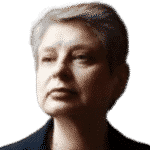This month, Andrei Sakharov—the Soviet nuclear physicist turned anti-nuclear activist and Nobel Peace Prize laureate—would have been 101. As the Russian billionaire industrialist Oleg Deripaska recently noted, Sakharov, ‘like no one else, understood the true consequences of the use of nuclear weapons and the senselessness of the arms race. He consistently advocated one principled position: for peace.’
As the Russian military ravages Ukraine with its ‘special military operation’, peace has become a dangerous word in Russia. Calls for it have got thousands arrested, with one man being detained simply for holding a copy of Leo Tolstoy’s War and Peace in Moscow’s Red Square. So, kudos to Deripaska for speaking out on its behalf.
Of course, refraining from nuclear war is not the same as securing peace. Rather, as Sakharov, who helped create the Soviet thermonuclear bomb, knew all too well, it means avoiding annihilation. As he wrote in 1968, ‘A thermonuclear war cannot be considered a continuation of politics by other means (according to the formula of Clausewitz). It would be a means of universal suicide.’
Khrushchev unmoved
Seven years earlier, Sakharov had pointed this out to my great-grandfather, Nikita Khrushchev, as he tried to dissuade the Soviet premier from producing and testing the very weapons he had helped the USSR to acquire. He may have thought he could get through to Khrushchev, who had, after all, carried out a de-Stalinisation campaign and freed prisoners from the gulag a few years earlier.
But Khrushchev was unmoved by Sakharov’s pleas and even outraged at his impudence. ‘You make your bombs and test them,’ the premier told the physicist. ‘Don’t try to tell us what to do or how to behave.’ In any case, Khrushchev testily noted, the USSR had carried out only 83 tests, compared with America’s 194.
To be sure, Khrushchev agreed with Sakharov that a nuclear war would bring total annihilation and never dreamed of starting one. But he also believed that nuclear parity and brinkmanship—as exhibited in the Cuban missile crisis of 1962—were politically necessary. In his memoir, he argued that as long as the west was developing nuclear weapons, it was only reasonable that the Soviets did the same. But he also expressed regret at his rudeness toward Sakharov, a ‘moral crystal’ who ‘was driven by universal good’ and devoted to ‘the preservation of all possible conditions for a better life for people’.
That rudeness had consequences, or so the Politburo claimed when it ousted Khrushchev in 1964. His problem, they argued, was not only that he made hasty and untested decisions—what his colleagues labelled ‘voluntarism’—but also that he had treated Sakharov poorly. The claim was rich: after Khrushchev was ousted, Sakharov soon became persona non grata among the Soviet establishment, because of his calls for intellectual freedom and other rights.
Nuclear war risk
More than 30 years after his death, Sakharov is again being suppressed—and the risk of nuclear war is again rising. Last December, the Kremlin shut down Memorial, one of Russia’s oldest civil-rights groups, which Sakharov and other Soviet-era dissidents created in 1987 to expose the scale of Stalin-era repression, including tens of millions of deaths in the gulags, and to campaign for the rights of political prisoners and victims of oppression.
Sakharov is being academically cancelled as well. On May 21st, during Moscow State University’s Day of Physics—which, incidentally, was established during the Khrushchev era—the physics department ‘postponed’ lectures on Sakharov’s life and achievements. They were busy with other matters, they explained. Really? With nuclear threats and accusations dominating public discourse in Russia, Ukraine and the west nowadays, what could possibly be more relevant?
As the war in Ukraine enters its fourth month, the Russian foreign minister, Sergei Lavrov, has warned that the risks of nuclear war are ‘very significant’, while assuring us that the deployment of nuclear weapons is out of the question for Russia. Given that Lavrov insisted with a straight face that Russia had not invaded Ukraine two weeks after Russian tanks rolled into the country, his assurance here may be more worrying than comforting.
Inflamed discourse
Compounding the risks is the inflamed discourse that has taken shape in both western and Russian media, fanned by politicians and public figures on all sides. The Ukrainian president, Volodymyr Zelenskyy, says the whole world should prepare for the possible deployment of tactical nuclear weapons in Ukraine. US officials have echoed these warnings, noting that the Russian president, Vladimir Putin, might feel compelled to take that step if he believes he has run out of options.
But such warnings can become self-fulfilling prophecies. Even the White House press secretary recently highlighted the need to tone down the nuclear rhetoric. Leaders on all sides could benefit from reading some Sakharov.
Still, nowhere is awareness of Sakharov’s legacy more important than in Russia. While some Russian elites grumble about the war in private, few have dared question it openly. Deripaska, who is among the oligarchs the west has sanctioned for his alleged proximity to the Kremlin, has emerged as a rare exception. With careful but pointed statements—such as his comment that Sakharov’s 1983 article ‘The danger of thermonuclear war’ has become relevant again, and that humanity needs to ‘grow up’—he has highlighted the true recklessness of nuclear posturing.
From rising repression to economic destruction to a rapid brain drain, Russia has incurred heavy losses from Putin’s war. Forgetting Sakharov’s legacy represents yet another step backwards. One hopes that it will not be a step toward universal suicide.
Republication forbidden—copyright Project Syndicate 2022, ‘Unhappy birthday, Andrei Sakharov’
Nina L Khrushcheva is professor of international affairs at the New School in New York and co-author of In Putin’s Footsteps: Searching for the Soul of an Empire Across Russia’s Eleven Time Zones (St Martin's Press).

